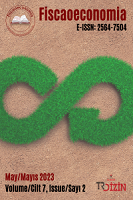Calculating Optimal Nonlinear Taxes Using Censored Income Data
Calculating Optimal Nonlinear Taxes Using Censored Income Data
Author(s): Eren GÜRER, Osman KÜÇÜKŞENSubject(s): Business Economy / Management, Economic policy, Political economy, Fiscal Politics / Budgeting, Socio-Economic Research
Published by: Ahmet Arif Eren
Keywords: Optimal Taxation; Redistribution; Censored Data;
Summary/Abstract: Approximating the skill distribution via observed incomes is a central aspect of estimating the optimal redistributive taxes. Emerging economies may exhibit high minimum wage take-up rates, hiding some of the heterogeneity in skill distribution. This paper shows in the context of Turkey that accounting for the minimum wage policy when approximating skills considerably alters the estimates of optimal redistributive income taxes. Once the mass around the minimum wage is treated as left censored, the optimal tax scheme is significantly more redistributive in comparison to assuming no censoring. This is because allocating some of the mass around the minimum wage towards the lower parts of the skill distribution reduces the total skill stock and increases the standard deviation of the distribution. Consequently, the optimal marginal income taxes become higher, especially for the middle-skill group.
Journal: Fiscaoeconomia
- Issue Year: 7/2023
- Issue No: 2
- Page Range: 1721-1735
- Page Count: 15
- Language: English

